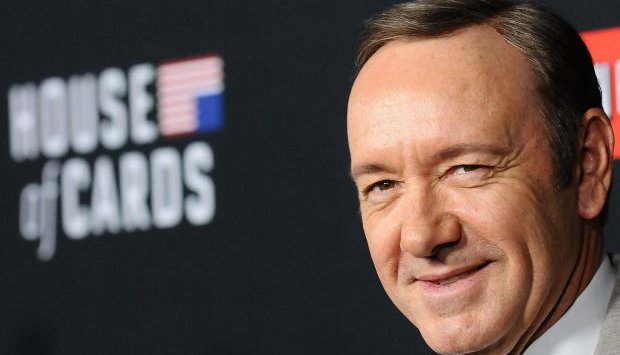
Recently I discovered House of Cards and am thoroughly enjoying plowing through the first three seasons. Initially seeing how Francis Underwood and the surrounding characters manipulated each other, constantly seeking ways to increase power, was almost intoxicating. Could I do that? Would I want to do that? Why not do that? It seemed possible, and Underwood’s confessions to the viewer of his mistakes and weaknesses made it human. However, by the end of season 1 the political manipulation between characters took its toll quickly and slipped from intoxicating toward revolting. How could people treat each other that way?
Kevin Spacey: “When you act or direct you have a responsibility to bring the right energy to create something with the group. I was fortunate to have mentors who were great examples, not because they sat me down and gave me lessons but because of how they behaved”
Therefore, it’s with trepidation that I read the March 2016 Harvard Business Review interview of Kevin Spacey on its last page. The fact that I associate him so closely with the negative traits of his Underwood character is a true testament to his acting ability.
I’m currently halfway through the class of 2016 Leadership Tomorrow class which is probably why I quickly gravitated to questions about leadership. Spacey says, “I was fortunate to have mentors who were great examples, not because they sat me down and gave me lessons but because of how they behaved.” This quote stems from his answer about to why he spent 10 years as the director of the Old Vic theater in London.
Later he says, “It’s incredible to help [young actors] find self-esteem, voice, and collaborative skills.”
Leadership Tomorrow uses two primary texts, “The Leadership Challenge” by Kouzes and Posner and “The Servant as Leader” by Robert K. Greenleaf. Spacey’s above quotes are excellent examples of some of the leadership traits espoused by these two great books.
From “The Leadership Challenge”
Spacey points out that when leading, behavior is more important than lessons. This demonstrates Kouzes and Posner’s first practice, Model the Way. Leaders must ensure they know their own voice before they can affirm shared values. Once they grasp their voice they are set to set the example by their actions. If the voice is truly there, this should come naturally. Spacey is lucky to have had mentors do this for him, and he’s an inspiration for passing what he’s learned forward by modeling the way himself.
From “The Servant as Leader”
The servant-leader is servant first. This requires a natural feeling that one wants to serve first. Then, and only then, through conscious choice, does one aspire to lead. As the Old Vic director, Spacey served his students by helping them find their voice and self-esteem. He served by wanting and trying to bring the necessary energy to his group while aspiring for a mutual, shared vision.
Kevin Spacey: “I wanted to make sure we built a theater company solidly so that when I left, it would continue”
The interview’s final question is about how House of Cards is made. I am intrigued to learn that it’s a highly collaborative process with a creative team. Spacey, who is one of the show’s Executive Producers, says, “It’s all about making the best show we can. It’s not ‘What’s good for me?’ It’s ‘What’s good for us?'” In other words, it’s not about what the leader can do to further his or her best interest (take that Francis Underwood), but rather how the leader inspires to help a team reach their mutually shared vision.